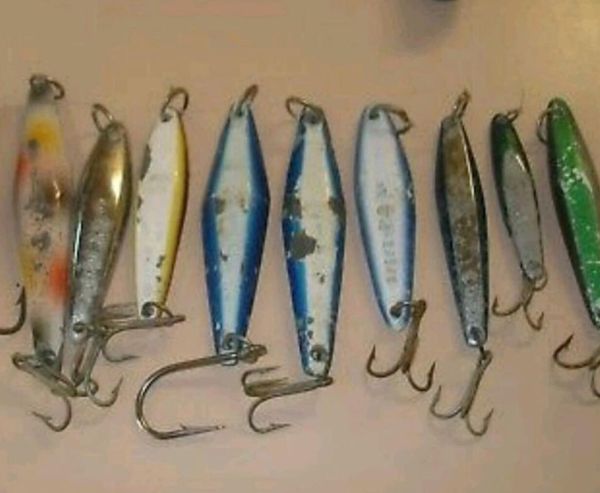 “We see you more as a doer instead of a leader,” she said to me during our post-interview meeting. It isn’t what I wanted to hear at the time. After twenty-six years of service in the same position, I had applied for a supervisory position that made sense for my next career steps within my current department. My employer was gracious enough to grant a debriefing time to discuss the hiring rationale and offer some advice to further my career pursuits. I was disappointed, needless to say, but our conversation didn’t surprise me. I turned to God’s word to understand more of His will and my purpose. (Pause for Thought: “But be ye DOERS of the word, and not hearers only, deceiving your own selves. For if any be a hearer of the word, and not a DOER, he is like unto a man beholding his face in a natural glass: For he beholdeth himself, and goeth his way, and straightway forgetteth what manner of man he was.”—James 1:22-24 Have you ever been rejected by someone? What were your immediate feelings? How long did your feelings last? What did you choose to do regarding your feelings?)
“We see you more as a doer instead of a leader,” she said to me during our post-interview meeting. It isn’t what I wanted to hear at the time. After twenty-six years of service in the same position, I had applied for a supervisory position that made sense for my next career steps within my current department. My employer was gracious enough to grant a debriefing time to discuss the hiring rationale and offer some advice to further my career pursuits. I was disappointed, needless to say, but our conversation didn’t surprise me. I turned to God’s word to understand more of His will and my purpose. (Pause for Thought: “But be ye DOERS of the word, and not hearers only, deceiving your own selves. For if any be a hearer of the word, and not a DOER, he is like unto a man beholding his face in a natural glass: For he beholdeth himself, and goeth his way, and straightway forgetteth what manner of man he was.”—James 1:22-24 Have you ever been rejected by someone? What were your immediate feelings? How long did your feelings last? What did you choose to do regarding your feelings?)
Warnings & Responses

Read more...

Gratifying Adversity

The adult eagle knows how important it is for its young not to count on the sustenance the parent eagle provides. If the eaglets become too comfortable in its solitary confines, the parent eagle will often deliver the food—sometimes a captured and killed lamb—to a nearby branch, forcing the baby to make a decision. The young can rise and meet the parent at the offering—gaining faith and strength, or it can sit, emaciate, and die within its current circumstances. I write this article on the heels of Easter; the celebration of Jesus Christ’s death and resurrection. I consider Him my sacrificial lamb and the Father as the one saying arise and join my Son. After all, it’s His Word that has taught me, “A friend loves at all times, and a brother is born for a time of adversity”—Proverbs 17:17; “Although the Lord gives you the bread of adversity and the water of affliction, your teachers will be hidden no more; with your own eyes your will see them.”—Isaiah 30:20 (Pause for Thought: “He gives strength to the weary and increases the power of the weak. Even youths grow tired and weary, and young men stumble and fall; but those who hope in the Lord will renew their strength. They will soar on wings like eagles; they will run and not grow weary, they will walk and not be faint.”—Isaiah 40:29-31 Has Jesus’ life, death, and resurrection taught you about adversity? What specific adverse event has shaped you into the person you are? Have you taught the “weary” and “weak” through that experience? What does Jesus want to teach you right now? What does he want you to teach others?)
Read more...

Counting

Read more...

Pursuing Permanent Relevancy

I would like to tell you my heroism in the pursuit and capture of the lost ring was remembered and appreciated to this day. The marriage the ring represented dissolved less than a year later, and the memory of the recovery isn’t near so significant or relevant at this point in time. I wished and prayed my uncle and aunt would’ve pursued each other with the same intensity and conviction I pursued their ring. This is how Christ pursues us, and it’s His desire we pursue His desires. Pursuing Kingdom matters and people with the heart of Christ is the most significant and relevant thing we can do. The need to do so is greater now than ever. (Pause for Thought: “Naked a man comes from his mother’s womb, and as he comes, so he departs. He takes nothing from his labor that he can carry in his hand. This too is a grievous evil: As a man comes, so he departs, and what does he gain, since he toils for the wind?”—Ecclesiastes 5:15-16 What are you pursuing right now? How relevant and lasting is it to you and your relationships? Is God part and result of your pursuit? How does knowing God wants to give you your desire, so you can pursue it, capture it, and leave it help you with your decision making?)
Read more...

The Forgotten Servant

Read more...
Doer
 “We see you more as a doer instead of a leader,” she said to me during our post-interview meeting. It isn’t what I wanted to hear at the time. After twenty-six years of service in the same position, I had applied for a supervisory position that made sense for my next career steps within my current department. My employer was gracious enough to grant a debriefing time to discuss the hiring rationale and offer some advice to further my career pursuits. I was disappointed, needless to say, but our conversation didn’t surprise me. I turned to God’s word to understand more of His will and my purpose. (Pause for Thought: “But be ye DOERS of the word, and not hearers only, deceiving your own selves. For if any be a hearer of the word, and not a DOER, he is like unto a man beholding his face in a natural glass: For he beholdeth himself, and goeth his way, and straightway forgetteth what manner of man he was.”—James 1:22-24 Have you ever been rejected by someone? What were your immediate feelings? How long did your feelings last? What did you choose to do regarding your feelings?)
“We see you more as a doer instead of a leader,” she said to me during our post-interview meeting. It isn’t what I wanted to hear at the time. After twenty-six years of service in the same position, I had applied for a supervisory position that made sense for my next career steps within my current department. My employer was gracious enough to grant a debriefing time to discuss the hiring rationale and offer some advice to further my career pursuits. I was disappointed, needless to say, but our conversation didn’t surprise me. I turned to God’s word to understand more of His will and my purpose. (Pause for Thought: “But be ye DOERS of the word, and not hearers only, deceiving your own selves. For if any be a hearer of the word, and not a DOER, he is like unto a man beholding his face in a natural glass: For he beholdeth himself, and goeth his way, and straightway forgetteth what manner of man he was.”—James 1:22-24 Have you ever been rejected by someone? What were your immediate feelings? How long did your feelings last? What did you choose to do regarding your feelings?)Read more...
Tents & Tabernacle
Read more...

Frayed Knot or Afraid Not?

Read more...

Fish House Worship

It started innocently enough. I had just beaten the rain to the dock and entered the fish cleaning house with my morning’s catch, when the other two entered through the spring-hinged screen door. The typical fishing pleasantries were shared between the three of us—“Those are wall-hangers where we come from.” I asked where they were from, and they said the Monroe area. I was grateful for their compliment and congratulated them on the number of fine panfish lying on the cleaning table; however, my spirit said there was more to these two gentlemen than the smell of fish and rain-soaked outerwear. (Pause for Thought: “When Elizabeth heard Mary’s greeting, the baby leaped in her womb, and Elizabeth was filled with the Holy Spirit. In a loud voice she exclaimed: ‘Blessed are you among women, and blessed is the child you will bear’.”—Luke 1:41-42. Have you ever sensed there was more to a meeting with a stranger than what was happening through your physical senses? To what did you attribute it?)
I could tell they sensed more to me, as well. The questions started becoming more personal and the explanations more detailed. Then it finally happened. The question and explanation we all were waiting to hear—“Are you a Christian? What does Christ mean to you?” The younger of us stated he had recently, within the last couple of years, surrendered his heart to Jesus and enjoys cooking for his church’s wild game dinner outreach. The older of us declared he was the retired pastor of a church in Monroe, and it was he who led the younger to faith in Christ. The worship began. Our hunting and fishing adventures took second-place to the miracles Jesus had wrought in our lives and how the Holy Spirit was changing us daily. (Pause for Thought: “It gave me great joy to have some brothers come and tell about your faithfulness to the truth and how you continue to walk in the truth. I have no greater joy than to hear that my children are walking in the truth. Dear friend, you are faithful in what you are doing for the brothers, even though they are strangers to you. They have told the church about your love. You will do well to send them on their way in a manner worthy of God.”—3 John 3-6 When is the last time you were doing something menial or mundane only to have it turn into a worship-fest? Who was with you?)
I know our meeting was not by chance, and I know the hobby of fishing lends perfectly to my soul’s sense of the Holy Spirit when I meet fellow fishermen. Throughout the gospels, Jesus turned an ordinary outing on a lake or shore into a worship service. I know he does it with the many talents and hobbies He bestows upon His children. For the disciples who were fishermen and became fishers-of-men, no morning catch would ever be the same. (Pause for Thought: “I’m going out to fish,’ Simon Peter told them, and they said, ‘We’ll go with you’. So they got into the boat, but that night they caught nothing. Early in the morning, Jesus stood on the shore, but the disciples did not realize that is was Jesus. He said, ‘Friends, haven’t you any fish? Throw your net on the right side of the boat and you will find some.’ When they did they were unable to haul the net in because of the large number of fish. This was now the third time Jesus appeared to his disciples after he was raised from the dead.”—John 21:3-6,14. Has Jesus used your gifts or talents to make your spirit and soul aware of His presence and/or His presence in others? Have you thanked God for these gifts and talents and expressed your worship for the times He encounters you in your efforts?)
Read more...
Slave To Love

Read more...
